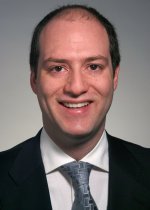| maps • volume xv number 1 • Spring 2005 |
|
MDMA-Assisted Psychotherapy in the Treatment of Anxiety In Advanced Cancer Patients |

By John H. Halpern, M.D.
Assistant Director Alcohol and Drug Abuse Research Center, Harvard Medical School/McLean Hospital Eight enrolled subjects will be randomly assigned to a full test-dose group and the other four will be assigned to the control group. The full test-dose of MDMA in session one is 83.3 mg followed 2.5 hours later by 41.7 mg (125 mg total) and, in session two, 125 mg followed 2.5 hours later by 62.5 mg (187.5 mg total). Those subjects assigned to the control group will receive 25 mg followed 2.5 hours later by 12.5 mg (37.5 mg total). This is too small a dose to be considered fully psychoactive but should be enough MDMA to serve as a psychoactive placebo. All doses are divided such that the first 2/3rds are administered first and then the final 1/3 is given 2.5 hours later if all parties agree and we believe it remains safe to do so. By splitting the dose of MDMA this way, we will evaluate whether extending the MDMA experience can deepen the therapeutic work.
Thanks to you all for your dedication to making it
possible for my collaborators and me to do what
some would have thought impossible.
In the months following these sessions, we will be collecting data on continued use of medications for anxiety
and pain while continuing to assess how much the experimental treatments may have impacted anxiety and quality
of life measures. The MDMA/Cancer study now awaits
only our DEA Schedule I registration so that we may
prescribe MDMA. We already have Schedule I registration
from the Massachusetts Department of Public Health, and,
once the DEA registration is issued, we will be ordering 3.25 grams of MDMA. Also, suitable facilities for this
project have finally been arranged for us here at McLean
Hospital. The space is in a modern building that has large
skylights in the treatment room.
Members of the research team have already met with Ms. Amy Emerson, who provides us with the clinical research monitoring procedures to ensure that we gather our data in a professional manner. Ms. Emerson is currently providing these services for Dr. Mithoefer's MDMA/PTSD study in South Carolina. Dr. Umadevi Naidoo, my co-therapist, will visit Michael and Ann Mithoefer soon to observe a treatment session and to discuss special issues that may arise when MDMA is administered in a research setting. We estimate that our study will be enrolling cancer patients within the next two to three months! To read more or to find out the latest breaking news related to the study, please go to the MAPS website. Another extremely exciting project at McLean Hospital is described on page 18 of this Bulletin. Dr. Andrew Sewell, my lab's first post-doctoral fellow, details our progress on studying how LSD and psilocybin may offer significant relief for people who live with the devastating chronic illness of cluster headaches. Very few physicians have completed residencies in psychiatry as well as neurology, so we are quite fortunate that Dr. Sewell has agreed to forgo the lucrative draw of private practice in favor of collaborating with us. If we do activate a study in which LSD is administered to these headache sufferers, someone with Dr. Sewell's unique training should prove essential in study design, implementation, and in that ever-important issue of convincing all those powers that be that, just like in the MDMA/Cancer study, we have brought together an exemplary team to conduct this work. After publication of our case series describing what current cluster headache sufferers have found from their personal experimentation with LSD or psilocybin (we have medical records on more than 30 patients so far!), we will be drafting all the documents needed for an eventual controlled study, just like we've achieved for the MDMA/Cancer project. If all goes as planned, MAPS could soon be sponsoring the only clinical research project with LSD in the world! And wouldn't that be a remarkable surprise if it occurs during Dr. Albert Hofmanns 100th birthday year in 2006? Stay tuned and please continue to check the MAPS website for further developments as they occur. Many years of hard work are starting to realize some of MAPS most important missions for competent and thorough research. Thanks to you all for your dedication to making it possible for my collaborators and me to do what those of lesser vision would have thought impossible. Thanks to you all for your dedication to making it possible for my collaborators and me to do what some would have thought impossible. |